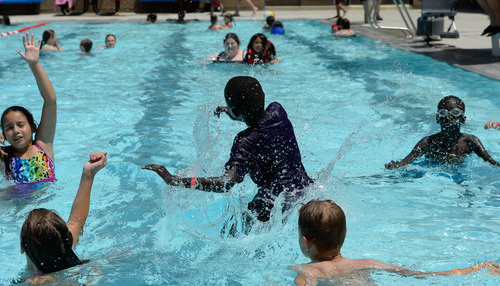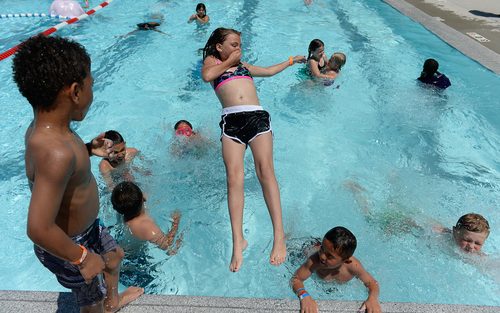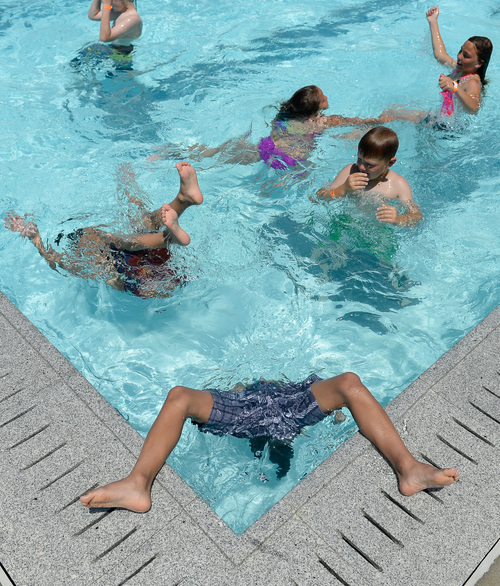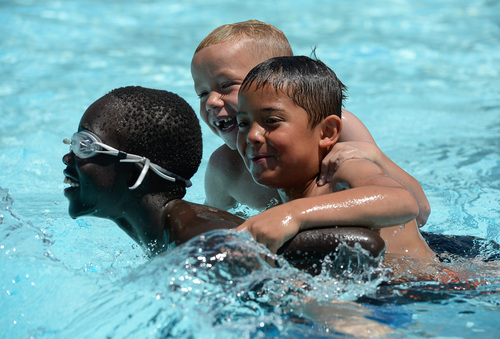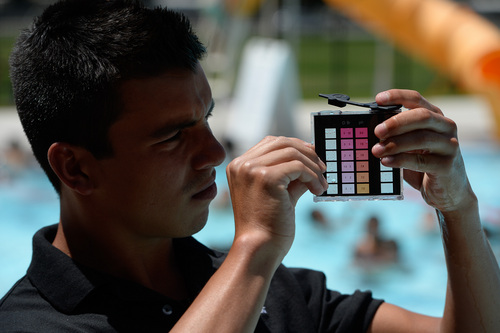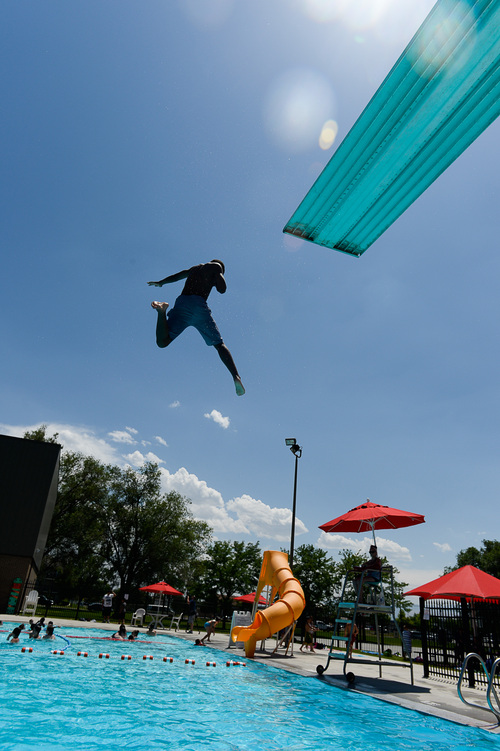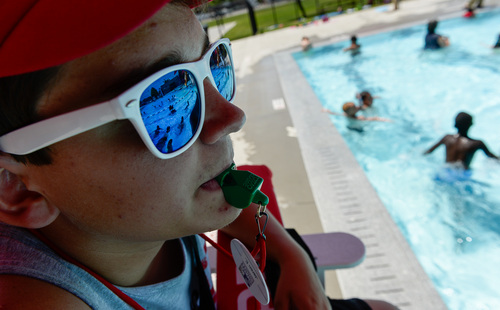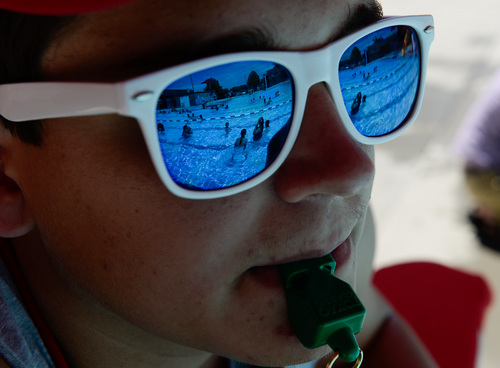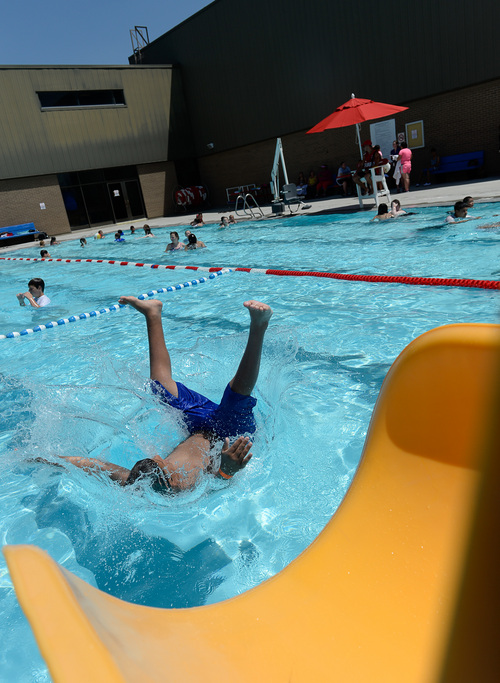This is an archived article that was published on sltrib.com in 2014, and information in the article may be outdated. It is provided only for personal research purposes and may not be reprinted.
When Irene Adolf accompanies 20 children to the Redwood Recreation Center pool twice a week, she doesn't worry about cryptosporidium.
"We stress to our kids taking showers before swimming, going to the bathroom in the bathroom, not the pool," said Adolf, who works at ABC Great Beginnings day care. "They know what's expected of them."
The Salt Lake County Health Department wants everyone to use such clean swimming practices this summer, and officials visited the West Valley City center Tuesday to remind Utahns about the diarrhea-inducing parasite.
Crypto, as Public Pool Manager Rick Ledbetter calls it, is spread through feces and contaminated water and is resistant to chlorine.
Some never experience symptoms after it attaches to their intestine. But others endure a two-week span of watery diarrhea and stomach cramps. The disease lasts up to six weeks in children and can include vomiting, fever and nausea.
Some people ingest crypto when recreating in lakes or rivers, where the microscopic parasite lives naturally, he said.
For pools, "our number one concern is actually the swimmer because they are the source for introducing germs into the pool water," Ledbetter said.
Clean behaviors — such as not swimming with diarrhea and not swimming within two weeks of having diarrhea — are the best way to reduce levels of the disease, Ledbetter said.
"We would remind parents to please take their kids on frequent potty breaks, check the diapers often — every 30 to 60 minutes," he said. "When they change the diapers, don't do it poolside. Please take the little kid to the bathroom or the diaper changing stations."
The county wants to prevent a repeat of 2007, when Utah had the largest cryptosporidium outbreak in the nation, with 1,900 cases reported. But since that summer, levels have continued to stay low.
"We want to give kudos to the swimmers and people out there because that tells us that a lot of people are complying and following the signs ... reminding them to do their part," Ledbetter said.
Nicholas Rupp, communications coordinator for the Salt Lake County Health Department, said all county recreational facilities have ultraviolet filtration systems, which are better than chlorine at killing crypto. Though effective, he said, it takes a long time to clean a body of water the size of a pool.
The county also has health inspectors and samplers who check the water at pools and each facility has a maintenance manager to check levels daily.
The public should watch for signs about filtration systems at other facilities, such as water parks or apartment complexes, and should check to see if pool staff enforce hygiene practices, Rupp said. —
Tips to prevent crypto
Don't swim with diarrhea or within two weeks of having diarrhea.
Don't swallow pool water.
Change diapers often, but in the bathroom, not by the pool. Wash hands thoroughly after a change.
Don't use swim diapers as a solution for children who have diarrhea.
Take a shower with soap and water before swimming.
Take frequent bathroom breaks and wash hands before returning to the pool.
Report a fecal accident immediately.


